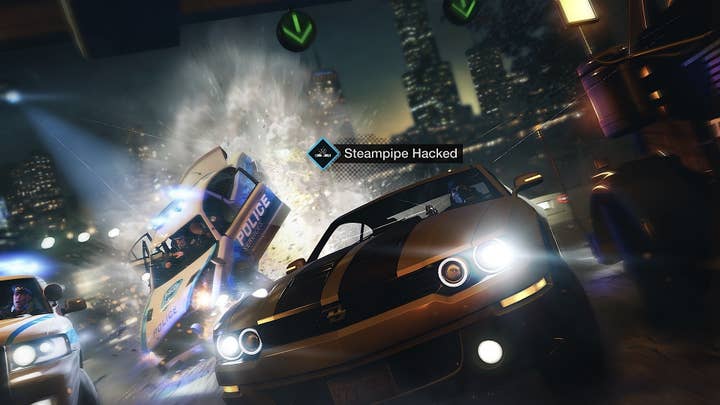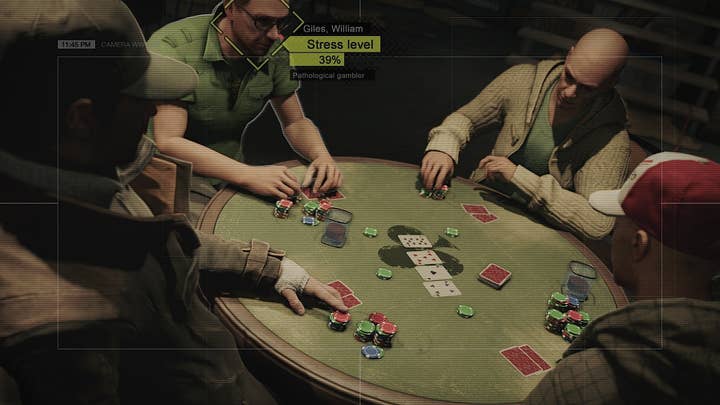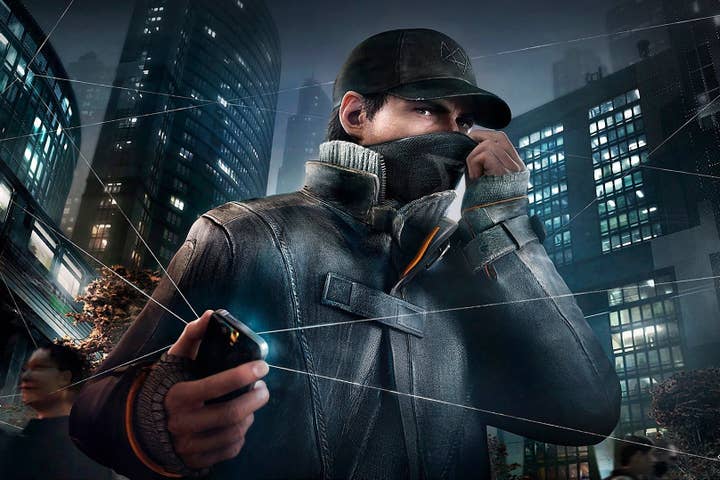Critical Consensus: Watch Dogs is fun, but is it the future?
Reviews oscillate between good and great as Ubisoft's eagerly awaited new IP finally arrives
This year's E3 will mark the second anniversary of the moment that Ubisoft unleashed its vision of next generation console gaming upon the world. The crowd, hungry for even the tiniest glimpse of something resembling the future, was enraptured. Watch Dogs stole the show with ease, but even that brimming stock of goodwill couldn't survive that interminable wait, the cascade of trailers and screenshots. At one point, Watch Dogs had the momentum of a bullet-train but, over time, uncertainty crept rudely into view; doubts, and quite reasonable ones, over Ubisoft Montreal's ability to make good on those audacious promises.
"At this point in life you've probably already determined whether or not you like this sort of game"
Giant Bomb
For Giant Bomb, those doubts are justified by the final product, which delivers in a host of familiar areas while falling agonisingly short in the one on which the promise of the game was sold. In a three-star review, Jeff Gerstmann laments that Watch Dogs not only fails to deliver the future, it also resonates unmistakably with the past.
"I'm reminded of the time when developers were ardently chasing after that Grand Theft Auto gold, resulting in a menagerie of takes on the GTA formula, each with their own little hook. Some worked out really well, others floundered and vanished."
The genre in which Watch Dogs most comfortably fits - the "mission-based open-world game" as Gerstmann describes it - has done little to stretch the template laid out by Rockstar all those years ago, and Ubisoft Montreal has fallen into the same "routine" as so many other developers. "The mission design is really standard for this sort of game - you'll hunt people down and shoot them, you'll get away from the cops, and the missions where you're asked to tail someone discreetly continue to suck.

"I don't necessarily view all this as a bad thing, but at this point in life you've probably already determined whether or not you like this sort of game... The things designed to set Watch Dogs apart, though, don't make that big of an impact."
Specifically, Giant Bomb takes issue with the implementation of Watch Dogs' hacking mechanic, which translates a single, contextual button-press into a plethora of different outcomes. "It's a one-size-fits-all approach to hacking," Gerstmann says.
However, while most critics do highlight Ubisoft Montreal's decision to streamline the hacking, not everyone regards it as such a problematic design choice. Much like Assassin's Creed's hold-down-the-button approach to parkour, certain gamers just feel uncomfortable when their fingers aren't give a constant workout. For Joystiq, though, it's a smart and perhaps necessary sacrifice that ultimately benefits the experience. Watch Dogs is not a game about "the act of hacking," after all, but a game about pervasive technology and how it controls and alters people's lives - only in a shallow action-movie kind of way, but it's there nonetheless.
"A wealth of variety that should stop almost anybody being bored"
The Escapist
Aiden, Watch Dogs' protagonist, can, "steal money, peek into someone's home through a laptop camera, read private exchanges, and see who's an activist, an adulterer, a karaoke enthusiast, or a fraudulent psychic. The world is obsessively detailed, expanding deep into Chicago's suburbs and beneath its daunting skyline, but the people and their secrets bring it to life.
"The temptation to peek exists without formal judgement, and there are no good or evil points to earn in your approach... The game is happy to let you spy, stalk, or brutally intervene when criminal activity appears in a dank alley. Putting the phone away means losing access to all the tantalising information floating around you, and eventually it becomes routine to take a break, stroll through the vivid rain and do some hardcore people watching. You start plucking online profiles out of the air because you can, because you have access. It's a contemporary fear you can explore here, albeit superficially, without being policed."
Joystiq awards Watch Dogs four-stars, which is a commendable score for a new IP. But The Escapist goes one better, handing out an extra half-star for the sheer density of informtaion and detail packed into its open-world. Aidan's ability to plunge into the personal lives of those around him makes Ubisoft's Chicago feel, "populated, thriving, buzzing with life. There's an ambiance to it, a sense of belonging to the world that no other city-based game has managed to capture as well."

The Escapist also salutes the generosity evident in Watch Dogs' "near overwhelming" amount of content, which range from relatively traditional side-missions to idiosyncratic little flourishes and hidden cutscenes. "Impressively, Watch Dogs is filled with optional gameplay that a player could miss entirely, leading to a wealth of variety that should stop almost anybody being bored."
And yet, as Giant Bomb's tepid response suggested, it is perfectly possible to grow weary of what Watch Dogs is offering. Eurogamer skews slightly higher with a respectable 7 out of 10, but its appraisal is quick to highlight the similarities between Ubisoft's first crack at new IP for the new consoles, and the numerous other IP that have populated its release schedule over the last generation.
"It's reliably good yet rarely great; entertaining without being inspired"
Eurogamer
"The way Aiden jogs and clambers as he navigates back alleys and rooftops, with you holding down the shoulder button to seamlessly vault and climb, is reminiscent of Assassin's Creed, for example - though without that game's nimble verticality and vertiginous parkour.
"You won't be scaling any sheer walls or taking flying leaps here, but you will be barging through crowds and working your way around CtOS [Chicago's ubiquitous operating system] towers, each of which unlocks more map icons and side missions. That's much the same as the lookout towers from Assassin's Creed but also identical in function to the enemy outposts of Far Cry 3. Call it Ubisoft's house style, if you like, but it leaves Watch Dogs feeling more like a greatest hits compilation than a distinct title.
"So many of Watch Dogs' ideas have been proven in other games, so it makes sense to use them again, but it does mean that the game never really nails its own identity. It's reliably good yet rarely great; entertaining without being inspired."









